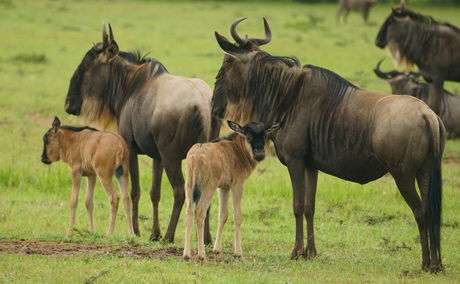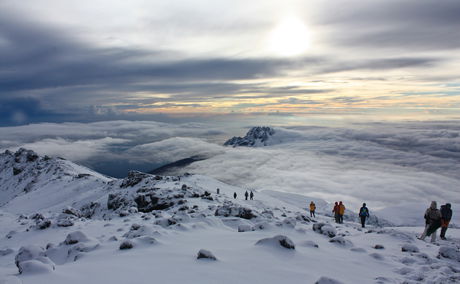Travel Deeper: How Cultural Respect Creates Truly Sustainable Tourism 1) True sustainability goes beyond eco‑habits—it begins with a respectful mindset toward local cultures. 2) Cultural respect strengthens the three pillars of tourism: environmental protection, economic resilience, and socio‑cultural preservation. 3) Empowering communities as guardians, artisans, and storytellers ensures conservation and dignified livelihoods. 4) Travel becomes legacy‑building when it shifts from extraction to authentic human connection.
Tanzania Safari Packing FAQs with Kijani Tours

A safari in Tanzania is an incredible and unforgettable experience that showcases stunning natural beauty and opportunities to see African wildlife up close. To make the most of your adventure, it's important to pack wisely. Bring comfortable clothing, layers to adapt to changing temperatures, and protective gear for sun and insect exposure. With the right preparation, you can fully enjoy the breathtaking landscapes and rich wildlife that Tanzania presents, making for a truly memorable journey.
Best Clothing for Safari in Tanzania:
1) Comfort: Wear comfortable cotton clothes for long car rides.
2) Layers: Pack layers for changing temperatures, including a jacket and scarf for chilly mornings.
3) Protection: Long sleeves and trousers protect from mosquitoes and sun.
4) Sun Hat: Essential for harsh daytime sun.
5) Essentials Only: Pack only what you need.
Colors to Wear:
1) Neutral Tones: Brown, khaki, and earth tones blend with nature and hide dirt.
2) Avoid: White, dark blue, black, and bright colors. Tsetse flies are attracted to dark blue and black. Camouflage clothing is illegal for civilians in Tanzania.
Footwear:
1) Comfortable Shoes: Sandals or closed-toe shoes are recommended. Closed-toe shoes are essential for cold evenings and mosquito protection.
Packing List:
1) Hand Luggage: Essentials like passport, money, tickets, vaccination papers, medicines, and a change of clothes.

2) Clothes and Footwear: Light, neutral summer clothes, windcheater, rain jacket, swimwear, sun hat, sandals, and evening shoes.

3) Toiletries: Toothbrush, toothpaste, deodorant, mosquito repellent, sun cream, and other personal care items.

4) Medicine: Prescription medicines, allergy pills, painkillers, first aid kit, motion sickness tablets, and other medication recommended by your physician.
5) Electronics and Camera: Mobile phone, charger, power bank, USB flash drive, headphones, binoculars, camera, and power adapter.

6) Travel Accessories: Luggage labels, rucksack, packing bags, notebook, and sunglasses.

What Not to Pack:
1) Prohibited Items: camouflage clothing, plastic bags.
Packing Tips:
2) Lightweight Bag: Use a durable, lightweight bag, preferably waterproof.
3) Check Weight Limits: Know the luggage allowance to avoid extra fees.
4) Share Suitcases: Pack essentials in your travel companion's suitcase in case of delays.
Walking safari packing guide for Tanzania
Kijani Tours’ walking safari packing guide for Tanzania stresses traveling light and choosing neutral shades—khaki, olive green, and beige—to blend into the bush, keep wildlife undisturbed, and ward off insects.
The essential packing list includes:
1) What to Wear: A wide-brimmed hat, sunglasses, a lightweight long-sleeved shirt, durable trousers, and well-worn, ankle-high hiking boots.
2) What to Carry: A daypack with water, binoculars, a camera with a zoom lens, a lightweight rain jacket, sunscreen, and a small personal first-aid kit.
The walking safari section also lists what to leave behind: strong scents (perfumes, lotions), plastic bags, and noisy snack wrappers to avoid disturbing the environment. Most importantly, it concludes that the goal of the safari is not just to see animals, but to fully immerse oneself in the ecosystem with curiosity and respect. The post ends with an invitation to contact Kijani Tours to plan a tailored walking safari.
To wrap up, a safari in Tanzania is a truly fantastic and memorable experience, offering magnificent nature encounters and thrilling wildlife sightings. To fully enjoy this adventure, it's essential to pack smartly. By preparing with comfortable clothing, protective gear, and essential items, you can ensure a seamless and enjoyable journey. Embrace the beauty of Tanzania's landscapes and wildlife, and make the most of your safari adventure.
Expand Your World with Kijani Tours: Where Adventure Meets Purpose
This blog explores the breathtaking drama of the wildebeest calving season in Tanzania’s southern Serengeti, where over 500,000 calves are born within a few short weeks between January and March. It highlights the synchronized birthing strategy known as predator satiation, which helps ensure survival by overwhelming predators, such as lions, cheetahs, and hyenas, with sheer numbers. The piece captures the emotional intensity of this natural phenomenon—where life and death unfold in real...
The article depicts climbing Mount Kilimanjaro as a journey of personal growth, emphasizing inner transformation, resilience, and empowerment rather than mere physical achievement, highlighting profound connections and lasting change through struggle and triumph.



Share This Post